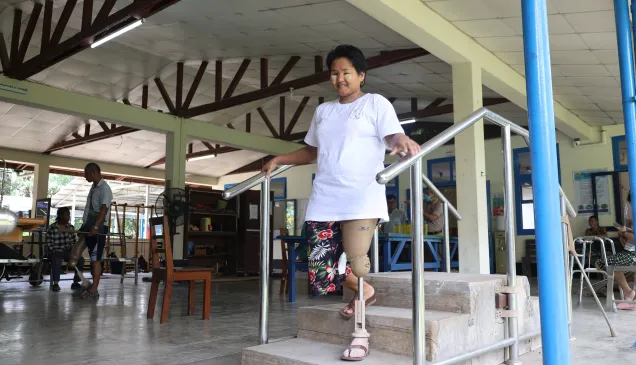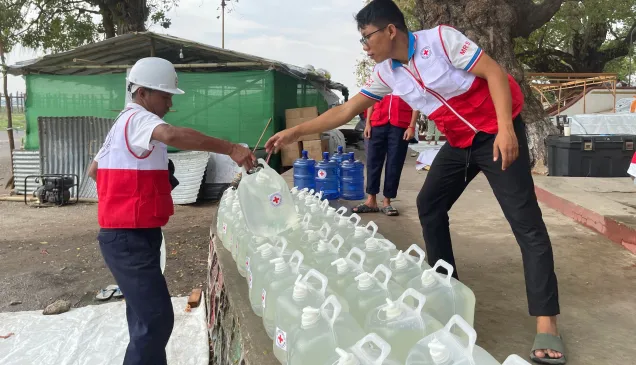Myanmar: Life as a humanitarian in Maungdaw

Naing Naing Oo remembers meeting a group of children who had survived being stranded at sea.
In a small boat, with little food, they drifted for days.
"When we talked to them, we were inspired – they had been so strong," says Naing Naing. "They had survived."
In her role working for the International Committee of the Red Cross (ICRC) from Maungdaw in Myanmar's Rakhine State, Naing Naing was one of many who helped the children following the incident.
"Now, when they see me, they recognise me," she says. "I cannot forget this thing." Naing Naing works as part of a team in Maungdaw that provides a range of support for families separated by violence.
A parent who needs financial help to visit a son or daughter in prison. A person recently released from a police lockup who needs assistance making the long journey home. Families looking for lost loved ones after a clash.
These are just some examples of cases where Naing Naing and her colleagues seek to provide support. It is work that is collaborative and unceasing. Naing Naing has been with the team since 2017, joining just as outbreaks of violence resulted in waves of displacement impacting hundreds of thousands of people in Rakhine.
At that time, colleagues from across Myanmar were called in to help respond to the massive spike in humanitarian needs. Years later, working as part of a close-knit team remains a highlight for Naing Naing.
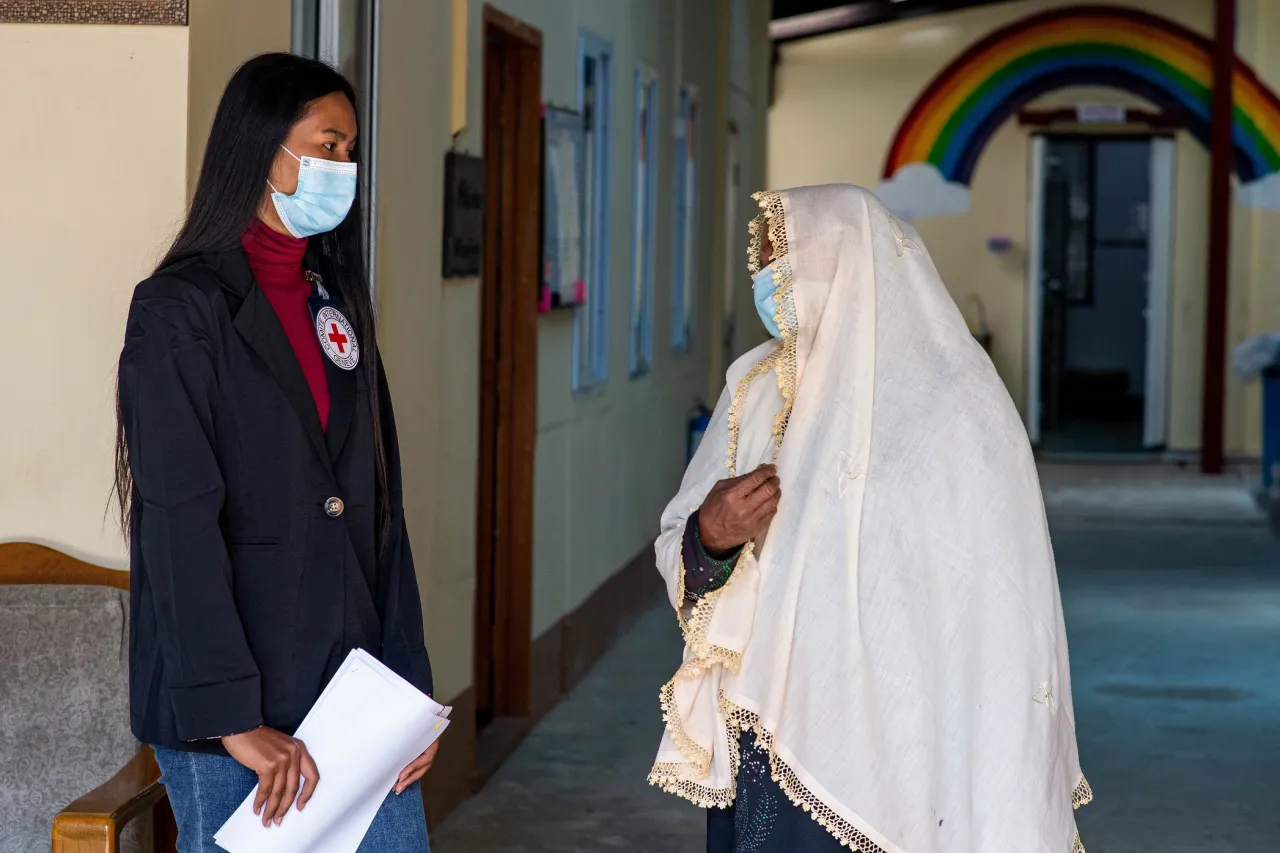
Naing Naing tries to ensure that people feel comfortable sharing their stories and needs with her. Thang Khan Sian KHAI/ICRC
"The first thing I think of is the working environment, which is amazing," she says. "I have lots of support from my colleagues."
Beyond the team, it is also the ability to work directly with people in northern Rakhine that is most rewarding. "I can work with communities – I can talk with and learn from them," Naing Naing says.
"I feel great working for the ICRC because we are an organisation that doesn't take sides – I feel really comfortable explaining who we are to villagers, to other people, to my family."
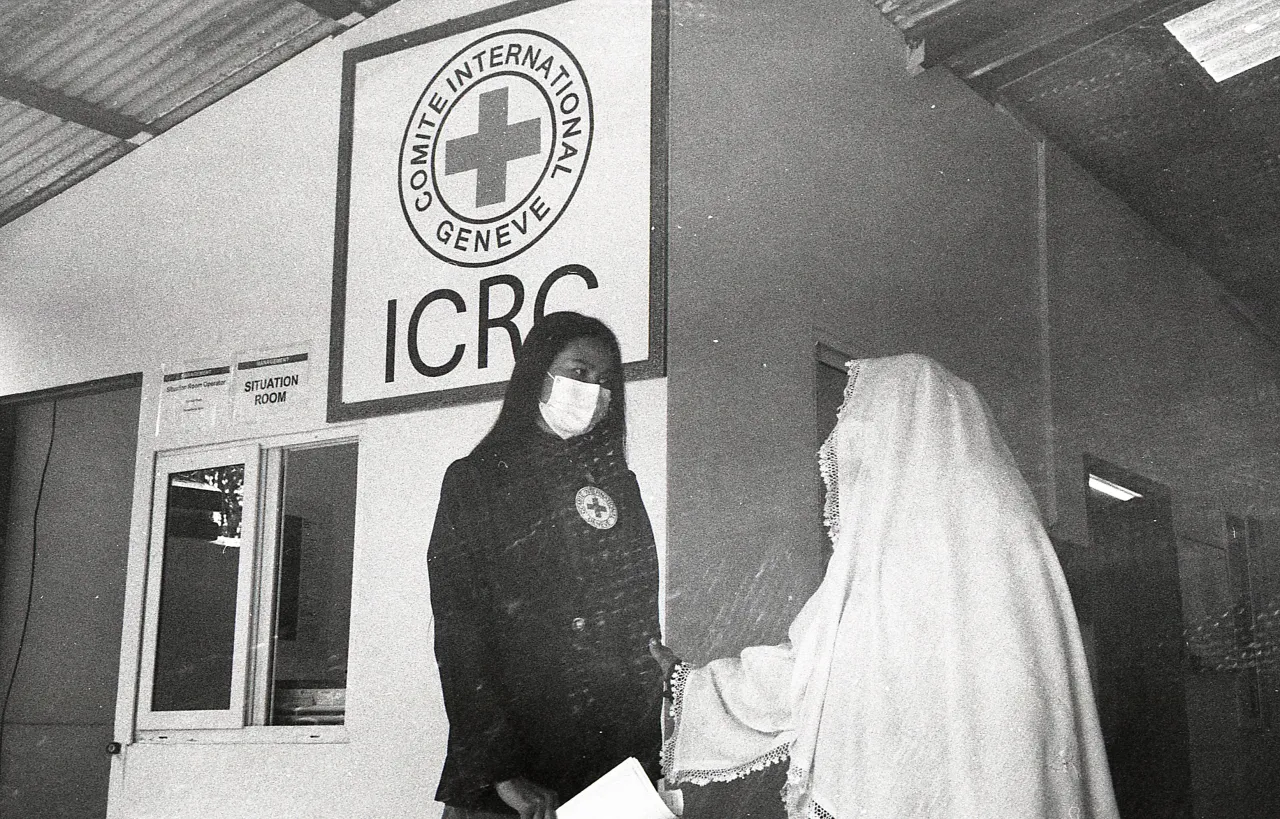
The ICRC has worked in Maungdaw, not far from the border with Bangladesh, since 2015.
Activities range from emergency assistance – like food and health services – to helping communities build sustainable livelihoods, often together with partners such as the Myanmar Red Cross Society (MRCS).
"Here, lots of people know about the ICRC because of our food distributions," Naing Naing says. "People also know our support in reconnecting families well."
The communities surrounding Maungdaw, and neighbouring Buthidaung, are multilingual and multifaith. Naing Naing grew up here, with neighbours and classmates reflecting this diversity.
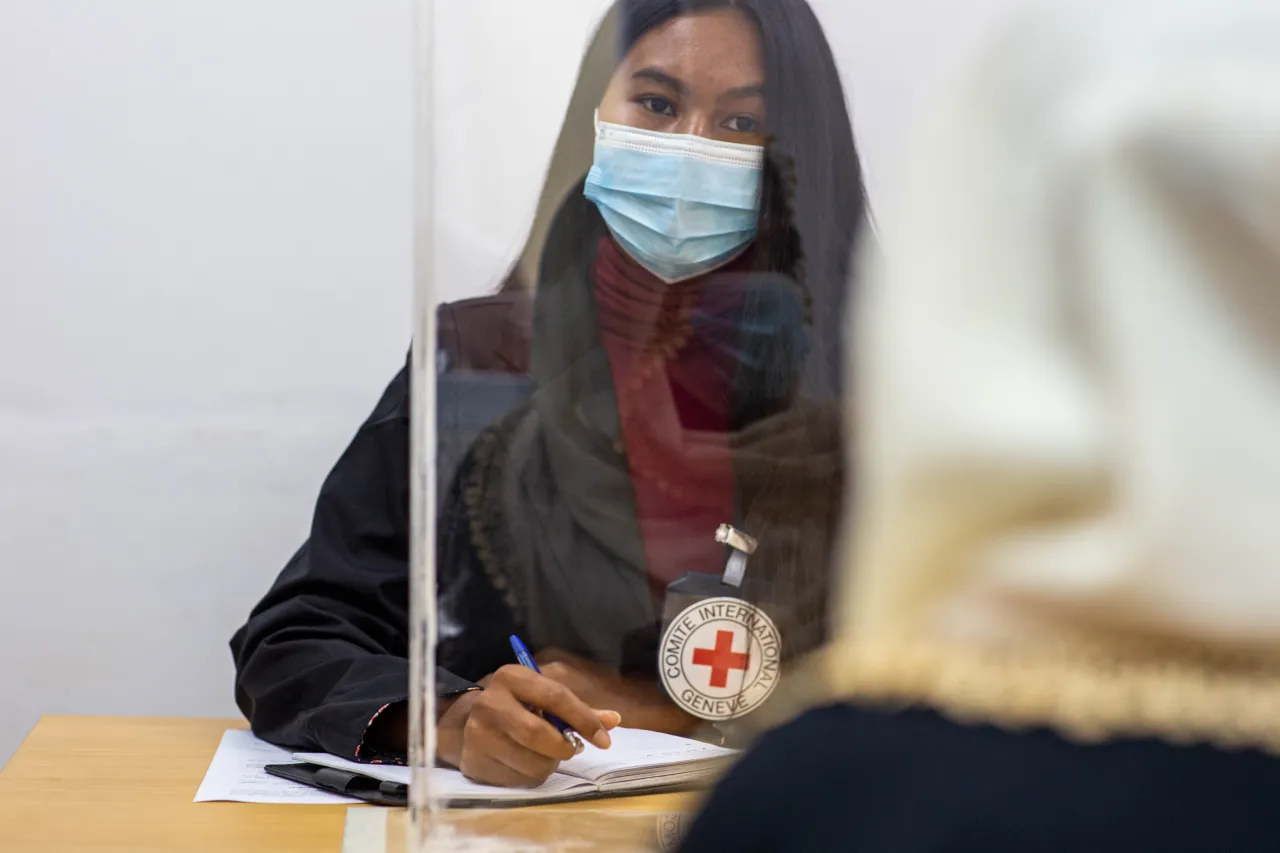
Her familiarity with Maungdaw, and the communities' familiarity with the ICRC, helps with the work.
"I can explain our organisation is a humanitarian organisation," she says. "I explain we don't take sides; we don't discriminate based on belief or colour of skin – but they already know this from our activity."
In 2022, the dual impacts of COVID-19 and the 2021 military intervention still overlay the legacies of ongoing conflicts across the country to make life more challenging for people in Myanmar.
Despite the obstacles these overlapping impacts also pose for humanitarian work, the numbers tell a story of hope. Across Myanmar in 2021, we were able to help more than 4000 recently released detainees return home. We helped families visit loved ones behind bars more than 200 times and delivered close to 250 written messages.
For Naing Naing, helping people feel comfortable enough to share their stories and needs is key to this work.
"It depends on the person – I don't ask hard questions, I ask 'how are you?'" she says. "That's how we start the conversation."


